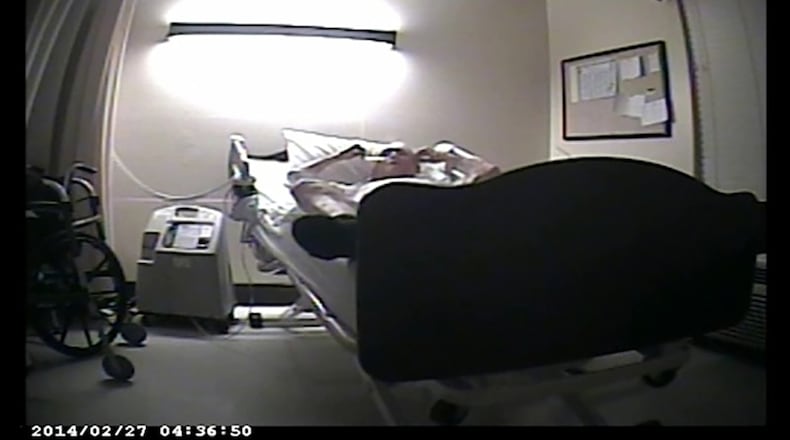The family of World War II veteran James Dempsey never would have learned the true story of the 89-year-old’s death in an Atlanta nursing home without footage from a hidden camera they placed in his room after becoming suspicious.
The video revealed his disturbing final moments when the nursing staff ignored his repeated pleas for help, saying he could not breathe. The Supreme Court of Georgia ruled in December that Dempsey and his family acted legally when placing a hidden camera and it could be used in a criminal case.
But now, the Georgia General Assembly is considering a bill that would restrict hidden “granny cams,” like the one used by the Dempsey family and sanctioned by the Supreme Court. Instead, the legislation would authorize in-view cameras so that a long-term care facility and its employees would know they are being filmed.
“At its core for me, this bill is about patient protection – protecting the privacy, the mental wellbeing and the physical safety of our seniors,” Rep. Sharon Cooper, R-Marietta, the sponsor of House Bill 605, said in a statement.
Cooper has argued that cameras would prevent abuse and neglect instead of capturing the acts after the fact. She said the COVID-19 pandemic, when families were barred from visiting homes, has highlighted the need for virtual oversight. “I believe families should be able to observe the care and well-being of their senior loved ones just as others watch their children in various care settings,” she said.
But advocates for seniors say the legislation is written in a way that favors the long-term care industry, which supports the bill.
“It is being promoted as pro-resident, but I think it is definitely more pro-facility,” said Nancy Pitra, associate state director of advocacy, AARP Georgia.
Pitra said some changes in the House version may be coming when the Senate takes up the bill, which could improve it. But she said the bill still says any footage that is obtained on a hidden camera couldn’t be used in civil cases and administrative actions. Plus, critics of the bill have repeatedly complained that there are no penalties if staff turns off or blocks cameras in ways the residents or family didn’t authorize.
Ginny Helms, president and CEO of LeadingAge Georgia, which represents nonprofit and mission-driven senior care providers, said her members want the bill to pass. She said it’s needed to address staff shortages. She said the legislation makes it clear families have a right to cameras that are out in the open, which “provides oversight protection for residents without the adversarial environment that hidden cameras create for staff.”
Pitra said senior advocates had pushed for a bill authorizing cameras in nursing homes for several years before the Supreme Court decision authorized them. But the industry opposed the legislation, and it went nowhere. Now, they want legislation, Pitra said, to rein in what the Supreme Court case allows.
She said the legislature should not limit those rights in a way that hurts families. She said the General Assembly has already protected the industry by passing legislation that blocks civil lawsuits in cases of neglect that happened during the pandemic.
“If we’re going to pass this legislation, please let it be something that fully protects the residents and gives their families rights for once,” she said.
About the Author


